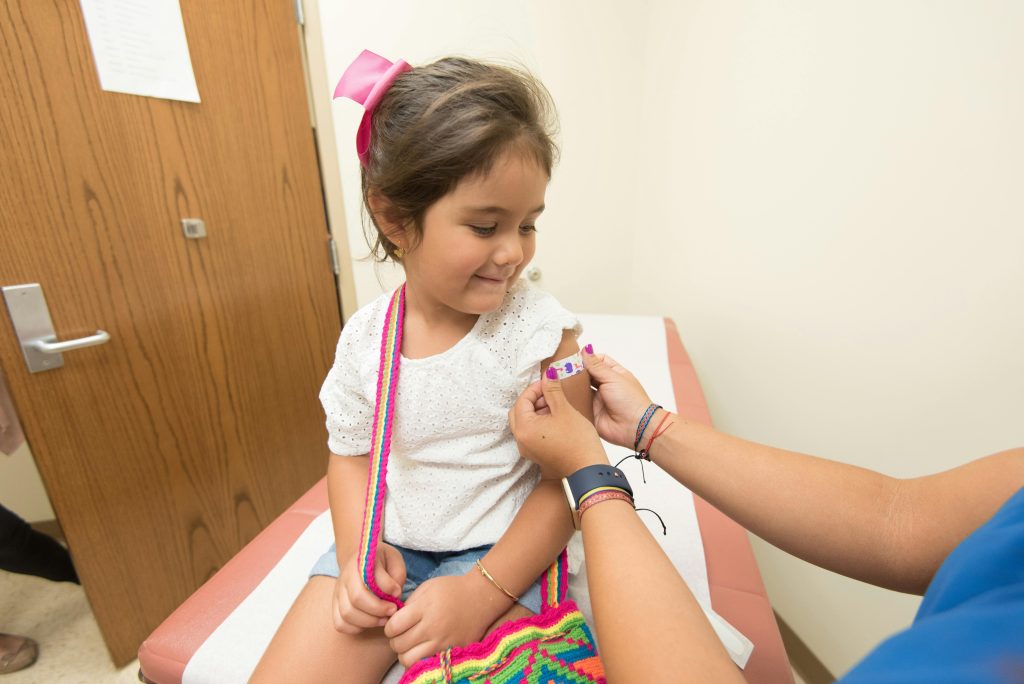Vaccination is one of the most effective ways to protect children from life-threatening diseases. The Indian Academy of Pediatrics (IAP) provides a well-researched immunization schedule to ensure that children receive the right vaccines at the right time. As a parent, understanding these guidelines can help you safeguard your child’s health.

Why Vaccination is Important
Vaccines protect children from infectious diseases, many of which can lead to serious complications or even death. Immunization also helps prevent outbreaks of diseases and contributes to herd immunity, protecting the community at large.
IAP-Recommended Vaccination Schedule
The IAP updates its immunization schedule regularly based on scientific evidence. Below is the latest recommended vaccine schedule for children in India:
At Birth
- BCG (Bacillus Calmette-Guérin) – Prevents tuberculosis
- Hepatitis B (1st dose) – Protects against Hepatitis B
- OPV (Oral Polio Vaccine) – 0 dose – Provides early protection against polio
6 Weeks
- Pentavalent Vaccine (DTP, Hep B, Hib) – 1st dose
- IPV (Inactivated Polio Vaccine) – 1st dose
- Rotavirus Vaccine – 1st dose
- Pneumococcal Conjugate Vaccine (PCV) – 1st dose
10 Weeks
- Pentavalent Vaccine – 2nd dose
- IPV – 2nd dose
- Rotavirus Vaccine – 2nd dose
- PCV – 2nd dose
14 Weeks
- Pentavalent Vaccine – 3rd dose
- IPV – 3rd dose
- Rotavirus Vaccine – 3rd dose
- PCV – 3rd dose
6 Months
- Hepatitis B (3rd dose)
- Influenza Vaccine (1st dose)
9 Months
- Measles, Mumps, and Rubella (MMR) – 1st dose
- Typhoid Conjugate Vaccine (TCV) – 1st dose
12 Months (1 Year)
- Hepatitis A – 1st dose
- Influenza Vaccine (Annual Booster)
15 Months
- MMR – 2nd dose
- PCV Booster
- Varicella (Chickenpox) – 1st dose
18 Months
- DTP Booster – 1st dose
- IPV Booster
- Hepatitis A – 2nd dose
- Varicella – 2nd dose
2 Years
- Typhoid Booster
4-6 Years
- DTP Booster – 2nd dose
- MMR – 3rd dose
- OPV Booster
10-12 Years
- Tdap (Tetanus, Diphtheria, and Pertussis)
- HPV Vaccine (for girls to prevent cervical cancer)
Common Concerns About Vaccination
1. Are vaccines safe?
Yes. Vaccines go through rigorous testing before approval. Side effects, if any, are usually mild (fever, pain at the injection site) and temporary.
2. Can vaccines overload my child’s immune system?
No. A child’s immune system is strong enough to handle multiple vaccines at once. Delaying vaccines increases the risk of disease exposure.
3. What if my child misses a vaccine?
Consult your pediatrician immediately. In most cases, a catch-up vaccination schedule can be planned.
Tips for Parents
- Keep a vaccination record to track doses and appointments.
- Follow up on booster doses for complete protection.
- Do not skip vaccines based on misinformation. Consult a pediatrician for concerns.
Final Thoughts
Following the IAP vaccination schedule is one of the best ways to ensure your child’s lifelong health and well-being. Vaccines protect against serious illnesses and contribute to a healthier society. Stay informed, stay protected!
Stay Updated on Your Child’s Health!
For more expert pediatric advice, follow our blog and schedule a consultation with our specialists today.